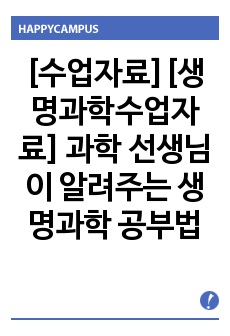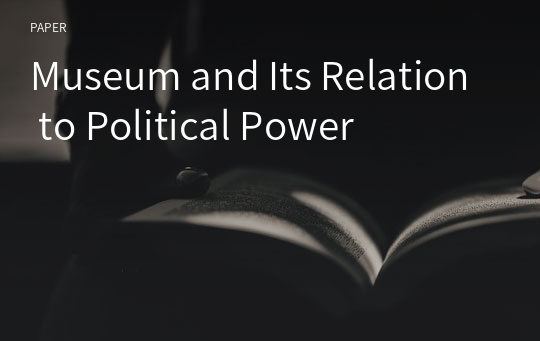Museum and Its Relation to Political Power
* 본 문서는 배포용으로 복사 및 편집이 불가합니다.
서지정보
ㆍ발행기관 : 한국박물관학회
ㆍ수록지정보 : 박물관학보
ㆍ저자명 : Jinsoo Park
ㆍ저자명 : Jinsoo Park
목차
IntroductionOrigins: towards the public museum
Social Darwinism
Conclusion
References
한국어 초록
This paper offers a preliminary critical analysis of the political significance of the Koreanmuseums during the Japanese colonial era through an examination of: first, the original conceptof public museum in the both of Korea and Japanese public. Second, the relationship betweenSocial Darwinism and the other theories involved with the colonial policy. Third, the purposeand uses of museum with ethical concem and sociological perspective.The results of this analysis rnay be summarised as follows:First, the Japanese modernising movement of the nineteenth century misrecognised the roleand purpose off the westem ‘public’ museum. This misinterpretation was, and transplanted ontothe Korean soil. Second, Social Darwinism had become dominant in Japanese intellectual societyand amongst the political leaders. These views were converted into were turned into theunderpinning of colonial policies and theories such as assimilation, civilising mission and etc.Thirdly, through the archaeological survey, excavation and interpretation of objects occurredrecontextualisation of Korean cultural history. Finally, illuminating by Bourdieu’s theory anepistemological domination of the colonist was represented through the museum practices.For the conclusion some of points are made which are:Comparison with the western countries the formation, purposes and uses of Korean museumswere limited to only representing the progress of modern state. It can hardly be said themuseums had functioned comprehensively as public entity. Social Darwinism was upholding themain colonial policy, thus the motivation of museum establishment could be understood in widercontext. Although interpretation of objects should be neutralised, the contexts of museum objectswere appropriated and deconstructed thus ethical concem should be raised in this point. Peoplewere appropriated and admitted thernselvesas the Japanese subject though the museum practice,this phenomenon was coincided with what Bourdieu called misrecognition and ‘symbolicviolence’.영어 초록
This paper offers a preliminary critical analysis of the political significance of the Koreanmuseums during the Japanese colonial era through an examination of: first, the original concept
of public museum in the both of Korea and Japanese public. Second, the relationship between
Social Darwinism and the other theories involved with the colonial policy. Third, the purpose
and uses of museum with ethical concem and sociological perspective.
The results of this analysis rnay be summarised as follows:
First, the Japanese modernising movement of the nineteenth century misrecognised the role
and purpose off the westem ‘public’ museum. This misinterpretation was, and transplanted onto
the Korean soil. Second, Social Darwinism had become dominant in Japanese intellectual society
and amongst the political leaders. These views were converted into were turned into the
underpinning of colonial policies and theories such as assimilation, civilising mission and etc.
Thirdly, through the archaeological survey, excavation and interpretation of objects occurred
recontextualisation of Korean cultural history. Finally, illuminating by Bourdieu’s theory an
epistemological domination of the colonist was represented through the museum practices.
For the conclusion some of points are made which are:
Comparison with the western countries the formation, purposes and uses of Korean museums
were limited to only representing the progress of modern state. It can hardly be said the
museums had functioned comprehensively as public entity. Social Darwinism was upholding the
main colonial policy, thus the motivation of museum establishment could be understood in wider
context. Although interpretation of objects should be neutralised, the contexts of museum objects
were appropriated and deconstructed thus ethical concem should be raised in this point. People
were appropriated and admitted thernselvesas the Japanese subject though the museum practice,
this phenomenon was coincided with what Bourdieu called misrecognition and ‘symbolic
violence’.
참고 자료
없음"박물관학보"의 다른 논문
 『사립미술관의 현실과 과제』에 대한 토론문 -결론에 대한 추가 및 세부 제언-3페이지
『사립미술관의 현실과 과제』에 대한 토론문 -결론에 대한 추가 및 세부 제언-3페이지 『용산 새 국립박물관의 성과와 과제』에 대한 토론3페이지
『용산 새 국립박물관의 성과와 과제』에 대한 토론3페이지 수집 2세대의 박물관 전시21페이지
수집 2세대의 박물관 전시21페이지 한국의 박물관, 현실과 과제16페이지
한국의 박물관, 현실과 과제16페이지 사립(私立)박물관을 생각한다9페이지
사립(私立)박물관을 생각한다9페이지 용산시대 국립중앙박물관 기획특별전과 전시콘텐츠 마케팅20페이지
용산시대 국립중앙박물관 기획특별전과 전시콘텐츠 마케팅20페이지 강원 영동지역 역사민속계 박물관의 유물관리 개선 방안 연구14페이지
강원 영동지역 역사민속계 박물관의 유물관리 개선 방안 연구14페이지 국립중앙박물관문화재단의 역할과 ‘극장 용’의 마케팅26페이지
국립중앙박물관문화재단의 역할과 ‘극장 용’의 마케팅26페이지 스토리텔링을 적용한 박물관 전시 구조에 관한 연구19페이지
스토리텔링을 적용한 박물관 전시 구조에 관한 연구19페이지 문화재교육의 프로그래밍 방법론에 관한 연구26페이지
문화재교육의 프로그래밍 방법론에 관한 연구26페이지




























